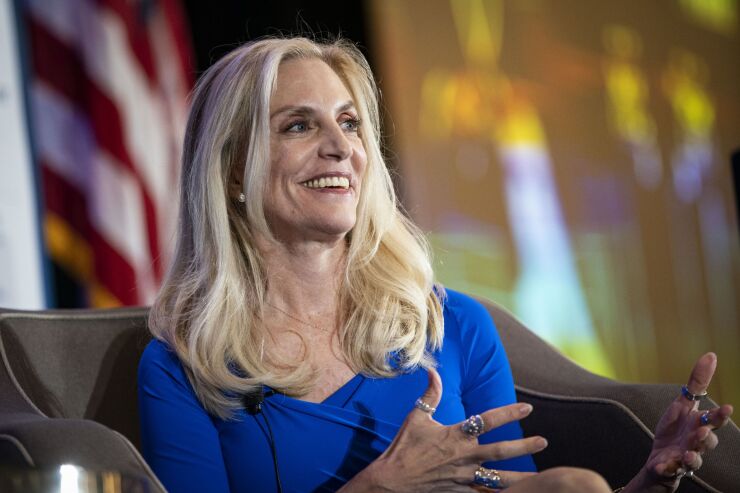Federal Reserve Vice Chair Lael Brainard told a group of early adopters of the central bank's real-time payments system, known as FedNow, that the system should be operational between May and July of 2023.
Speaking via webcast Monday, Brainard said that the pilot phase of the system will start in September and that how rapidly ordinary customers realize the benefits will depend in large part on how quickly banks update their payments technologies to adapt to the new system.

"We have been working hard to deliver on time, but ultimately the number of American businesses and households that are able to access instant payments will depend on financial services providers making the necessary investments to upgrade our payments infrastructure," Brainard said. "Together, we can ensure that all Americans have access to a modern and reliable instant payment system."
The Fed deliberated for years about whether to create its own payments system, with
The Fed
Brainard seemed to think that the Fed had met that standard, touting a "cloud-first" design unique among central bank settlement networks that would ensure both capacity to handle large volumes of transactions and reliability for consumers.
"Our cloud-first design, unique among central bank instant payment services, positions us for the future by enabling not only the throughput and scalability required for high-volume retail transactions but also broad geographic points of resiliency to ensure continuous service," Brainard said. "Cloud-first design affords other key technology components such as self-healing processes and automation, which add to operational resiliency."
The United States has lagged behind many other developed nations in its payments settlement systems, which rely on Automated Clearing House batch-processing systems that clear a large number of transactions a few times a day. The result is that transactions may be made instantly but will not be reflected in account balances for days afterward, a phenomenon that has
Brainard spoke to that structural disadvantage in her speech, saying the development and adoption of faster payments across the U.S. would be "especially important for households managing their finances paycheck to paycheck or small businesses with cash-flow constraints." But for that adoption to be successful, she said, institutions across the economy would have to begin working in earnest to ensure they are ready to take advantage of a faster payments future on day one.
"The time is now for all key stakeholders — financial institutions, core-service providers, software companies and application developers — to devote the resources necessary to support instant payments," Brainard said. "This means upgrading back-office processes, evaluating accounting procedures to accommodate a seven-business-day week, arranging liquidity providers, deploying a new customer-facing application and promoting instant payments for key use cases to customers."






